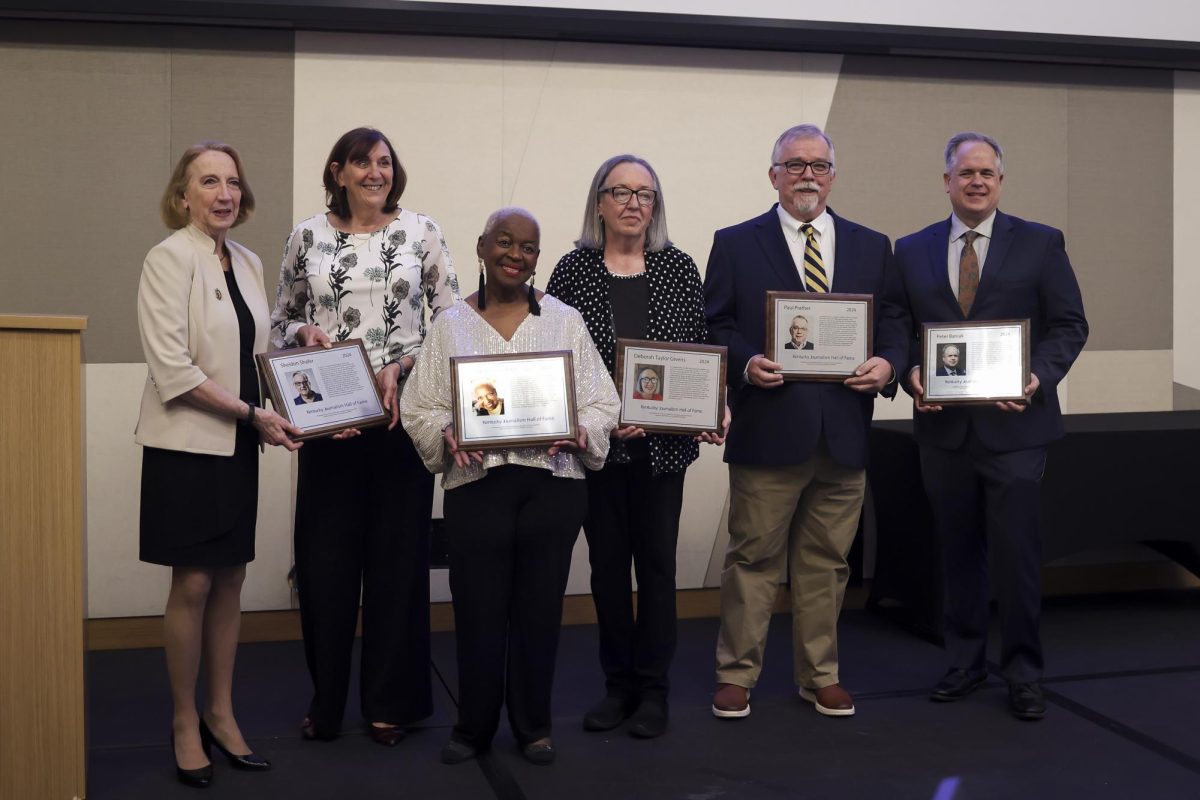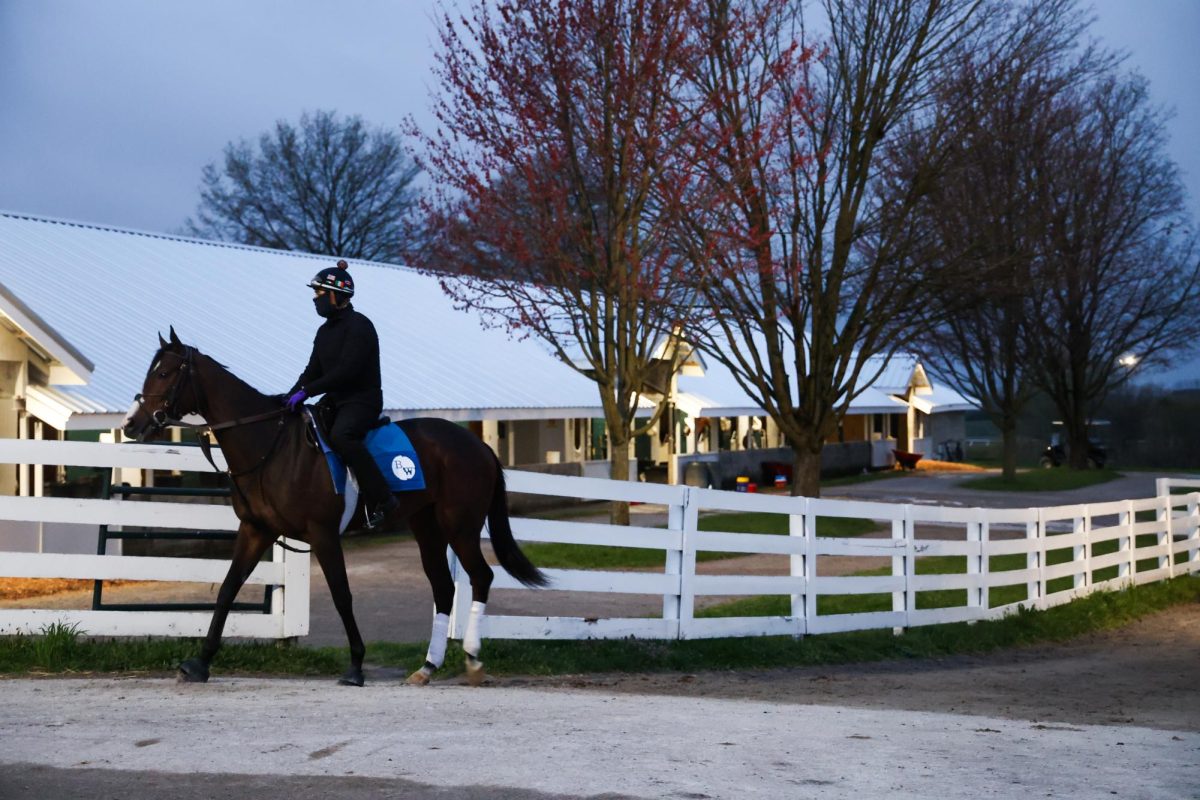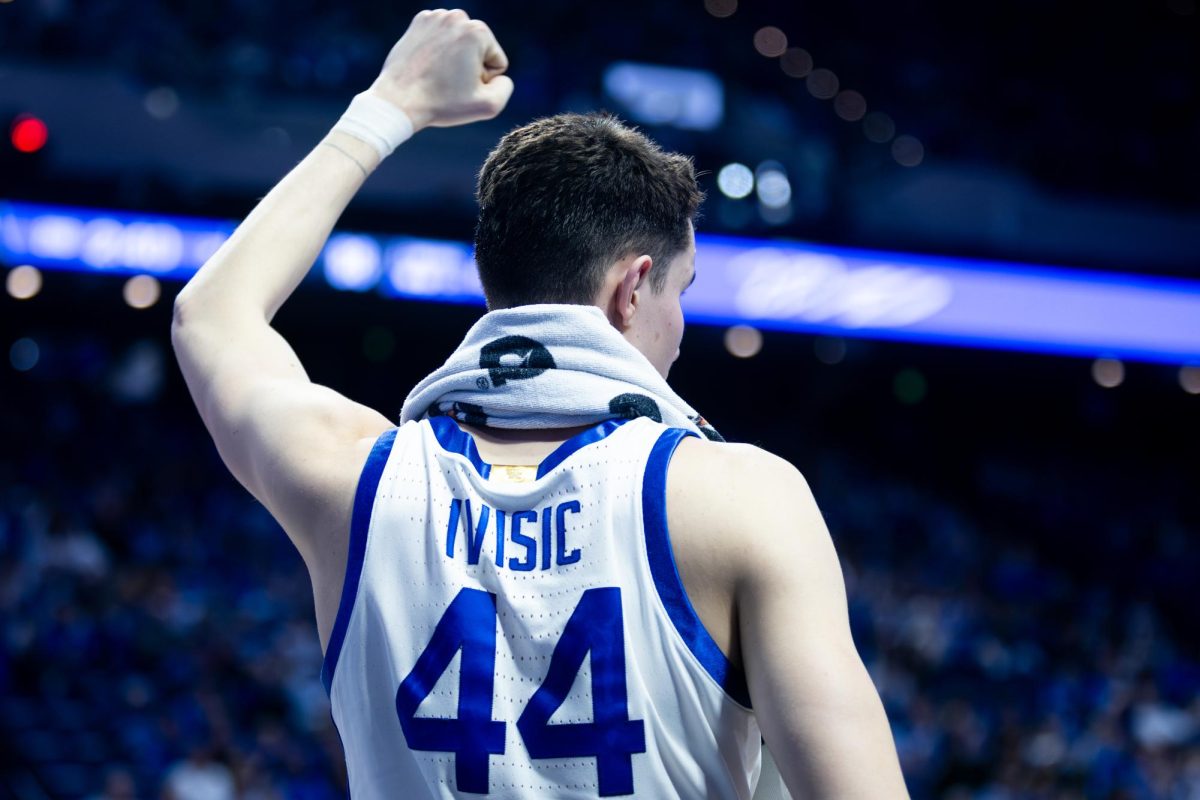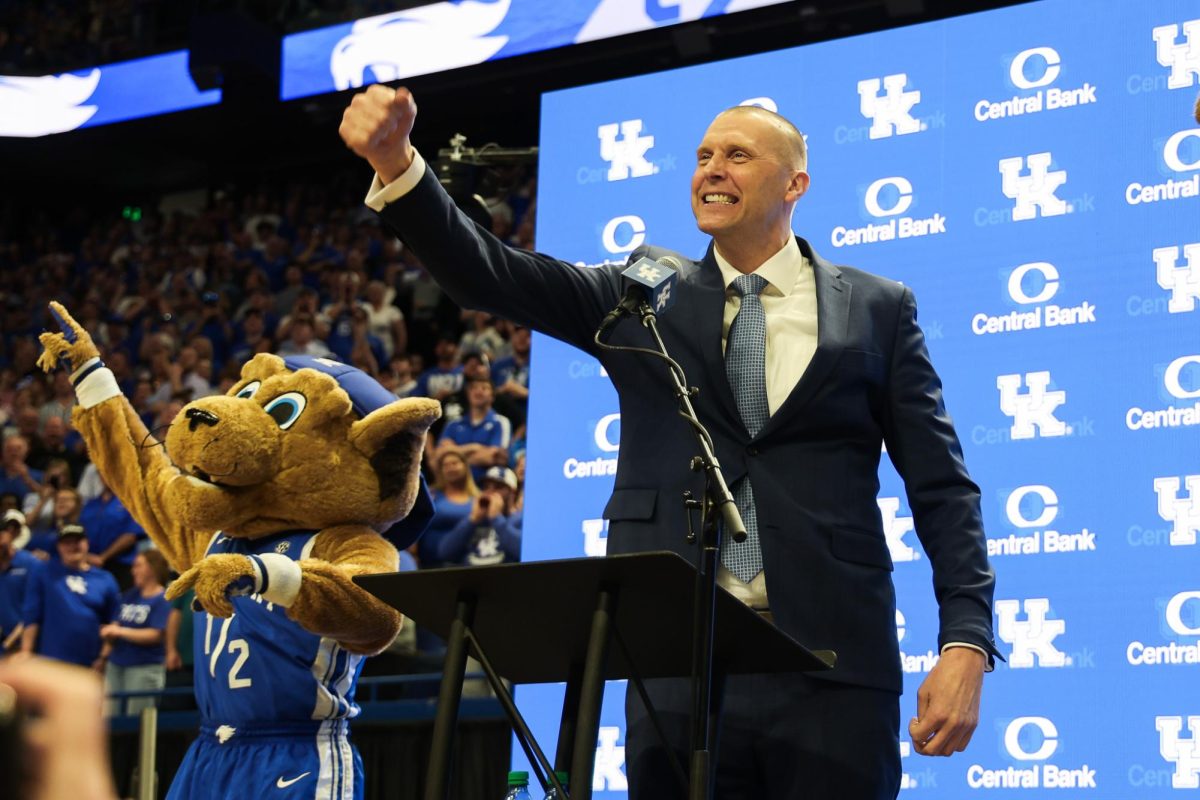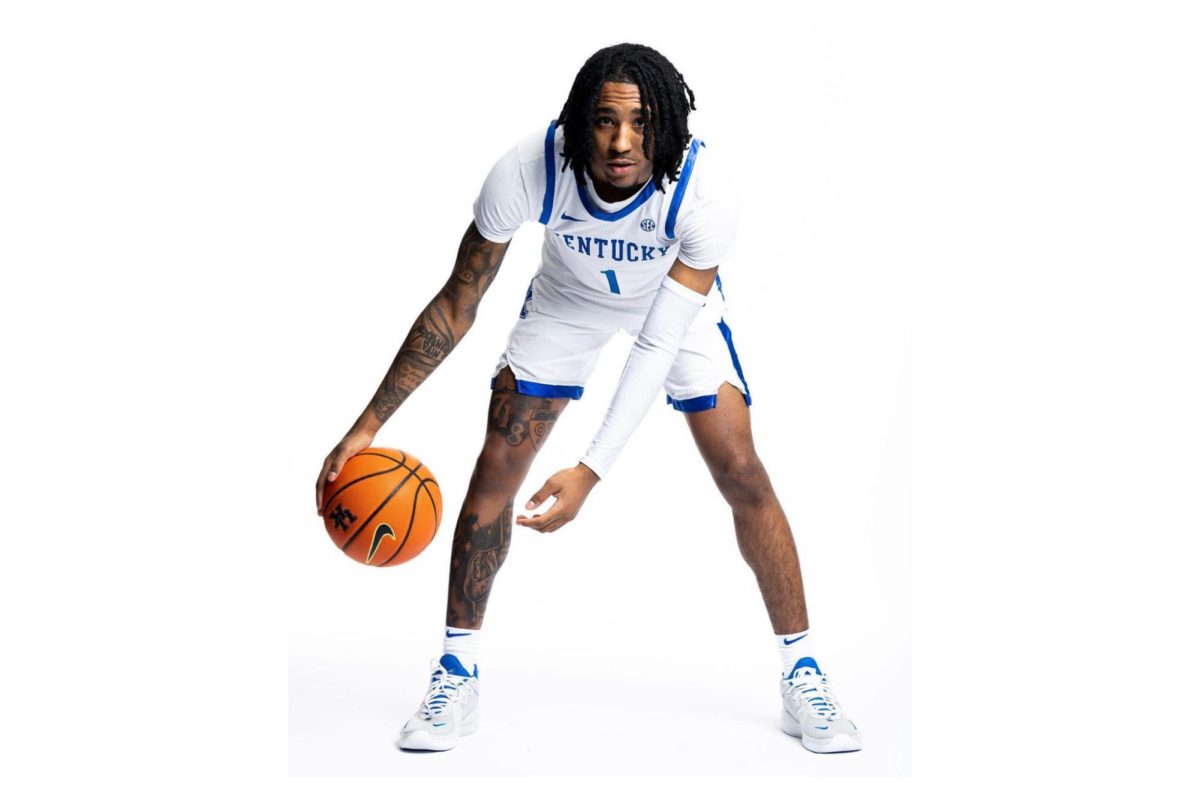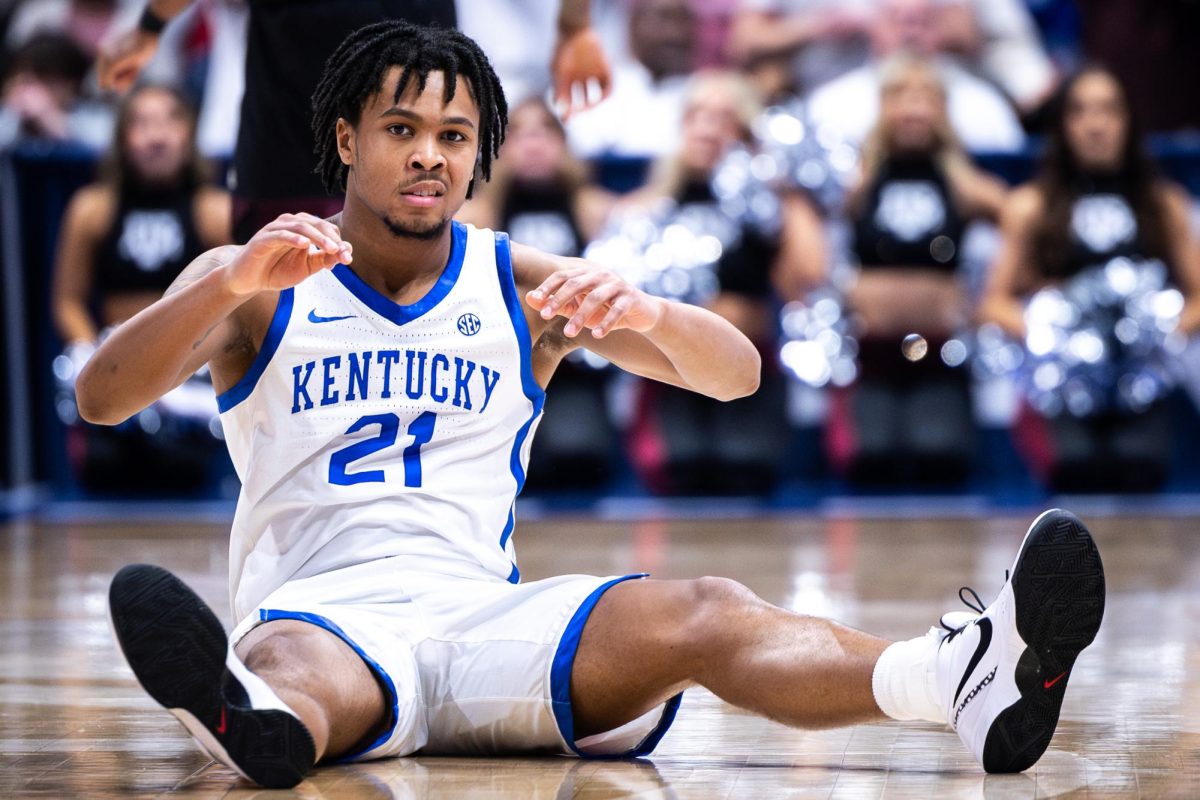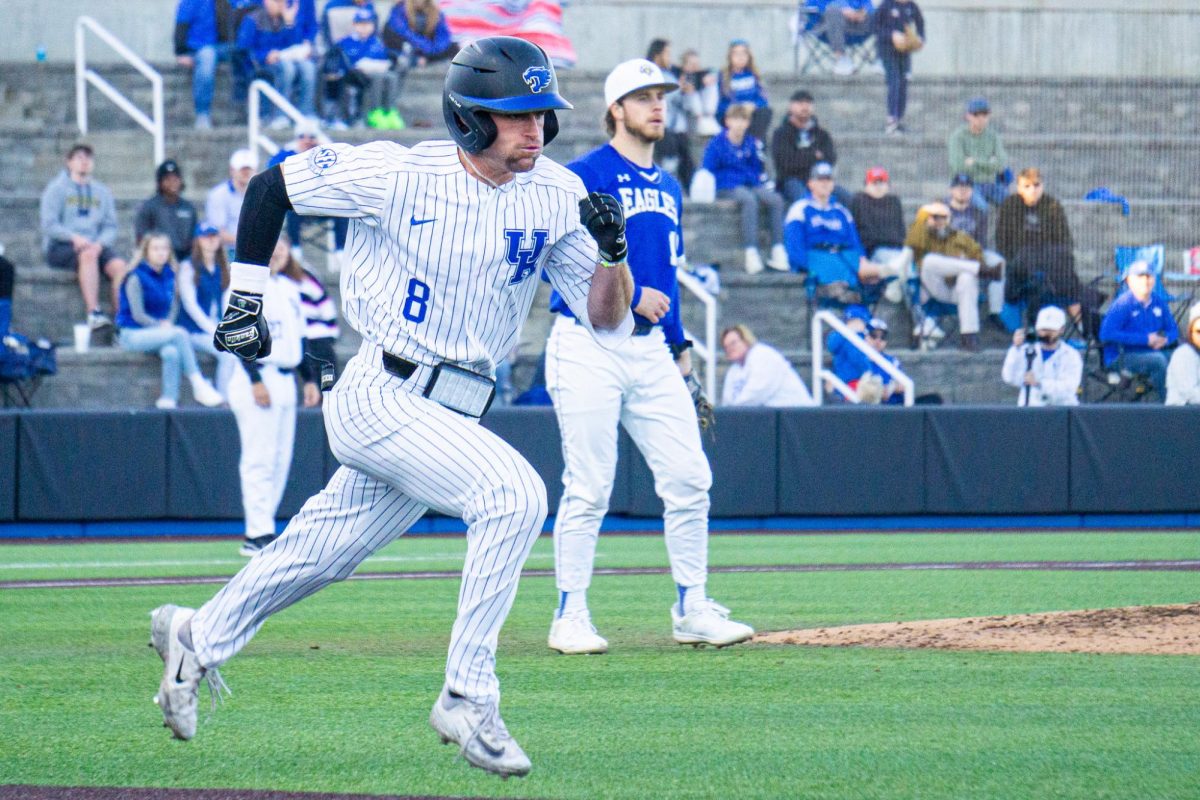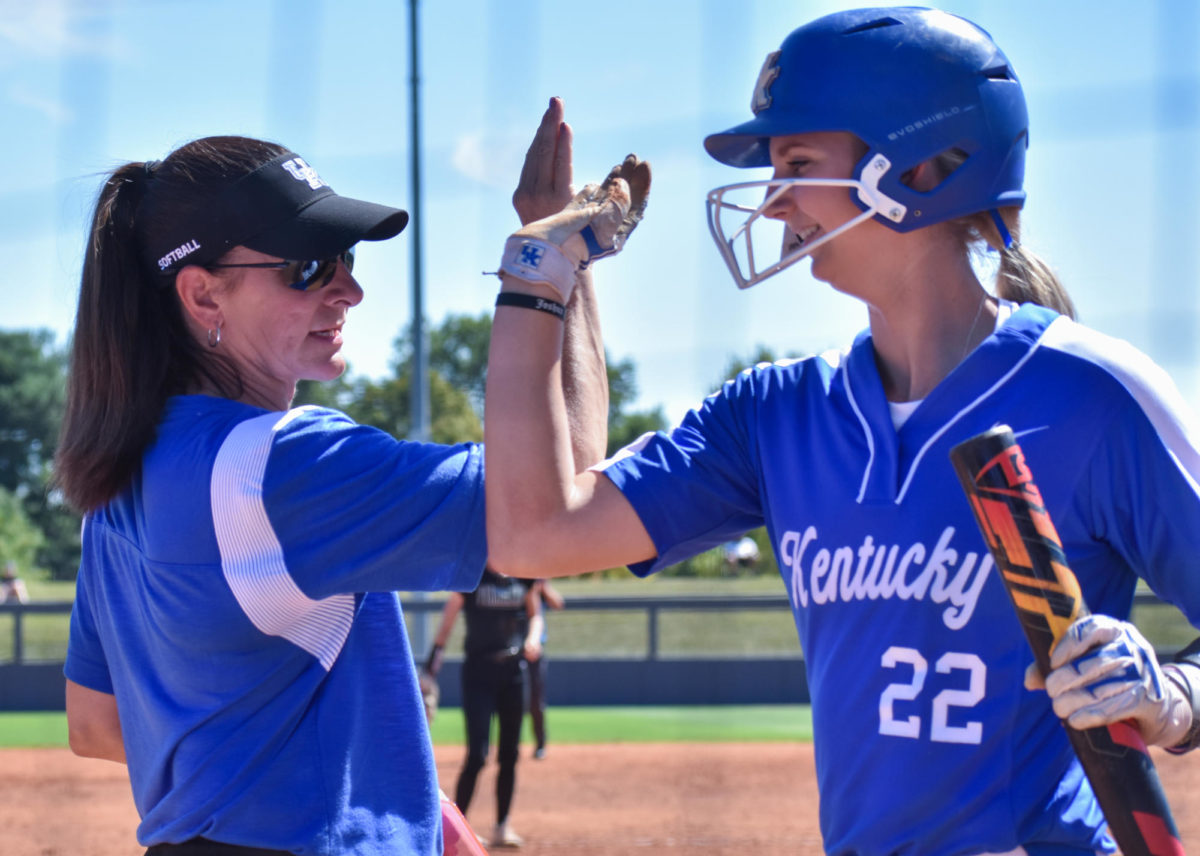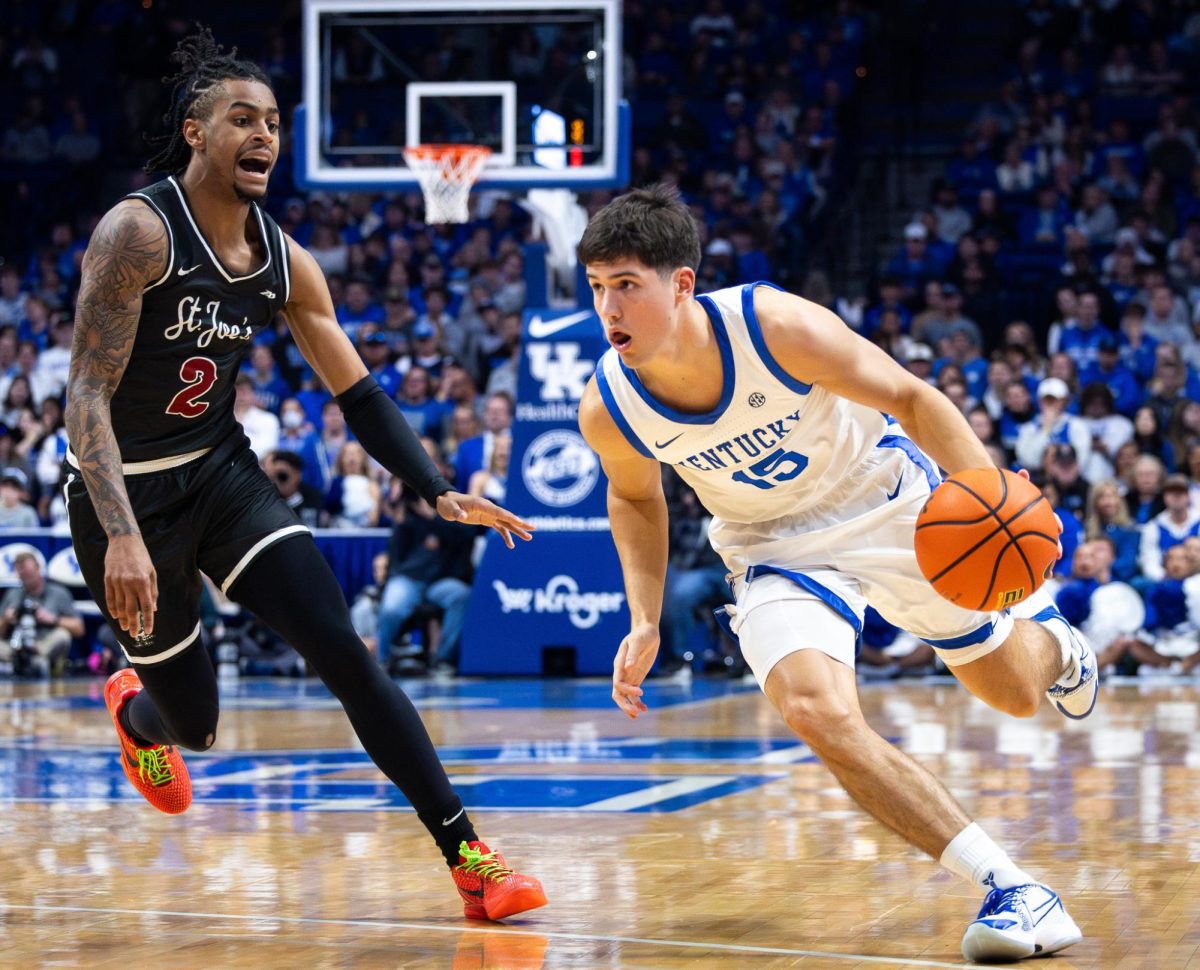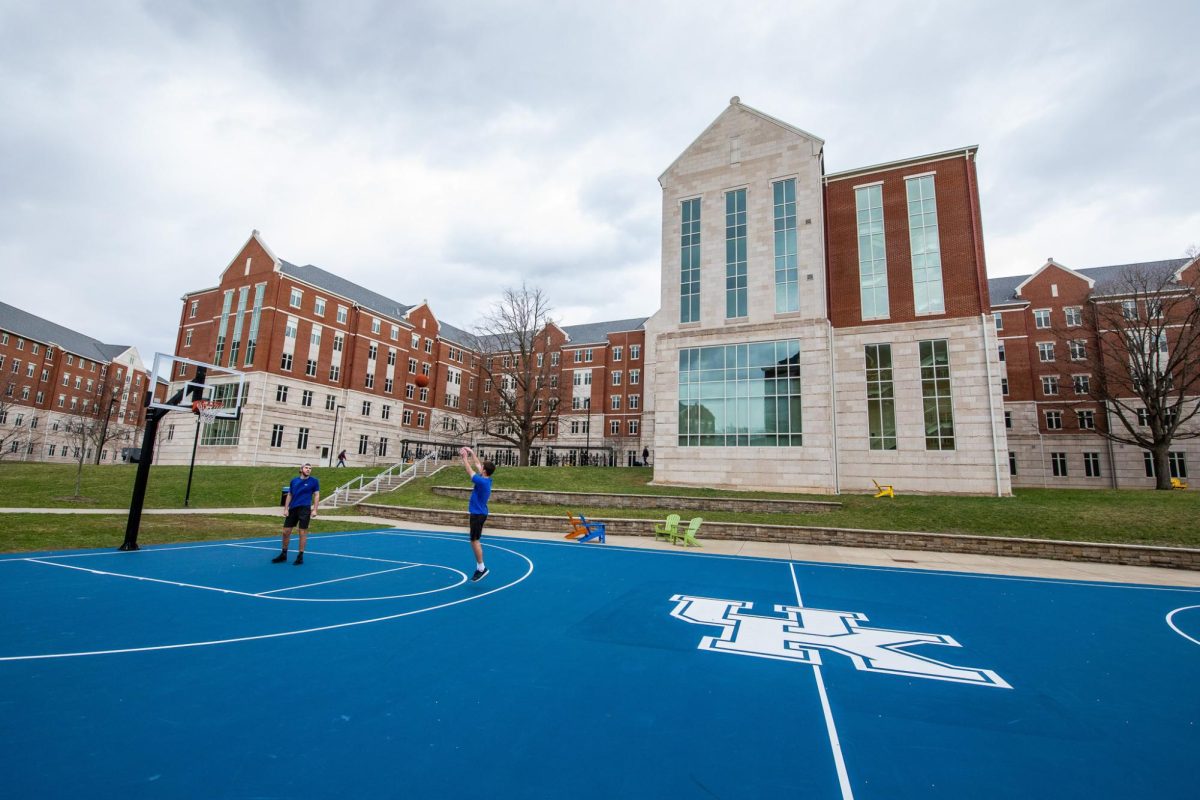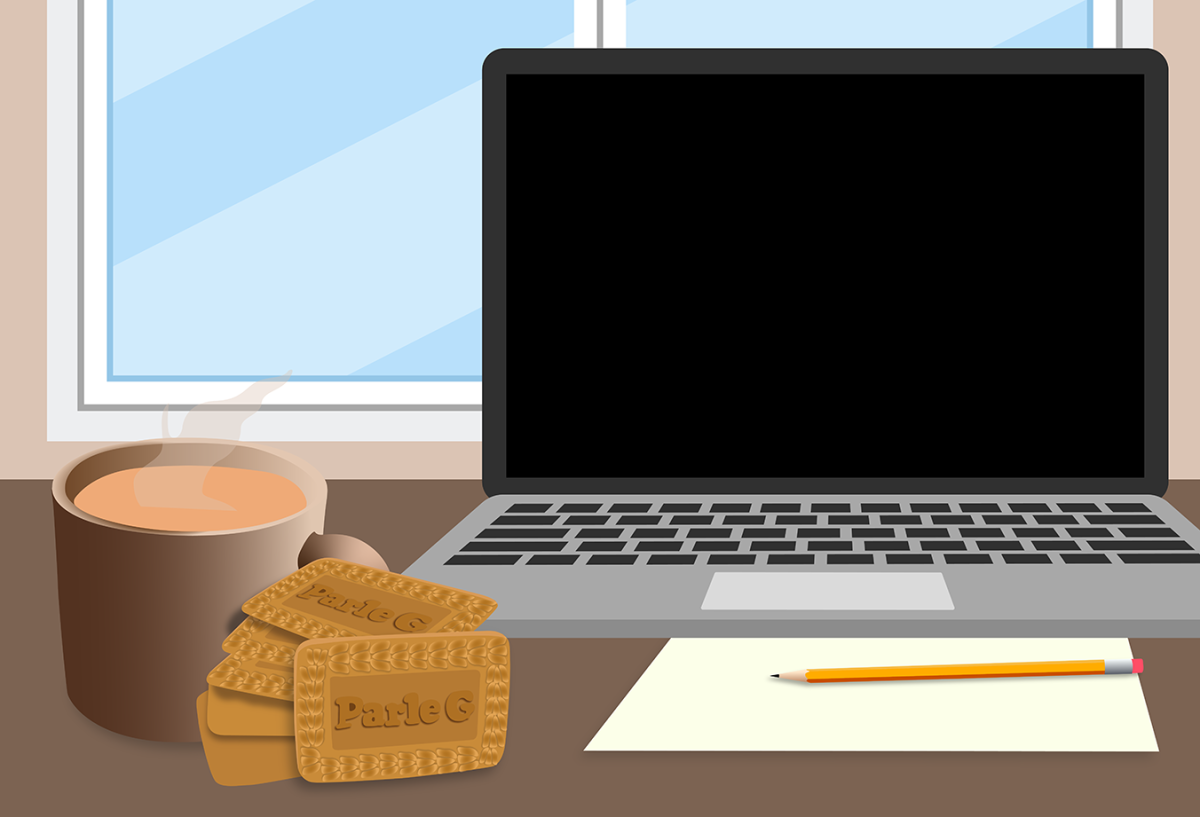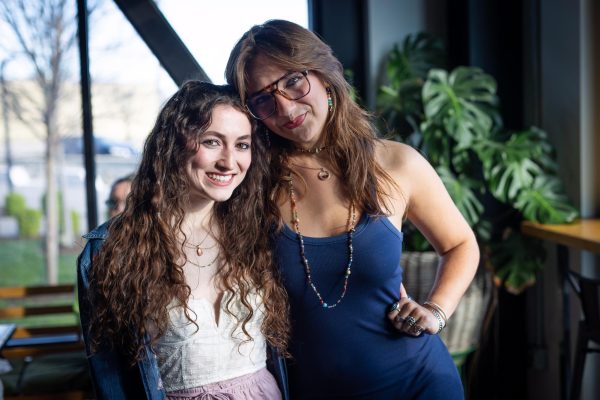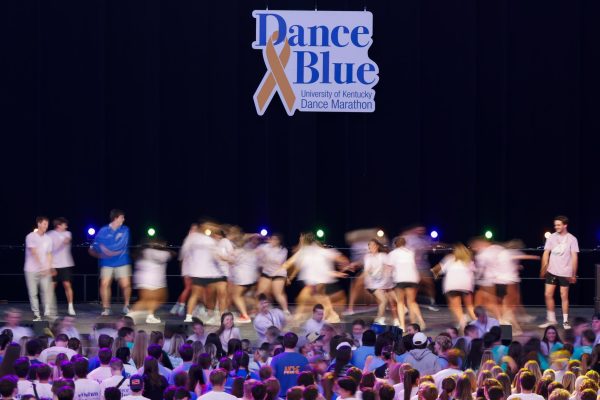Putting a face on the fight
January 31, 2008
DanceBlue’s Adopt-a-Family program pairs students with cancer patients
Some 5-year-olds are scared to go to sleep for fear of monsters under the bed. But Mackenzie Sorensen’s fear of sleeping was different.
“I was scared when night came to go to sleep or to take a nap,†Mackenzie said. “I was scared I would not wake up, I would die and wake up in heaven.â€
Mackenzie was diagnosed with acute lymphocytic leukemia in 2005 when she was 5 years old. She was treated at the Pediatric Oncology Clinic at UK Hospital, finishing her chemotherapy about four months ago. Now Mackenzie is 8 and in remission.
Being in and out of the hospital for the past three years, Mackenzie has had the support of the UK chapter of the Kappa Delta sorority through the DanceBlue Adopt-a-Family program.
DanceBlue is a yearlong fundraising project that raises money for UK’s Pediatric Oncology Clinic and ends with a 24-hour dance marathon. The Family Relations Committee for DanceBlue organizes the Adopt-a-Family program, which pairs DanceBlue teams with families who have a child with cancer. Committee chair Rachel Botto said the program benefits both the families and the teams.
“It is important that families know there are students on campus that support them in what can be a difficult time,†Botto said. “Also, for the adopting organizations, the program puts a face on pediatric cancer. These organizations now realize these are real children facing a very real and serious fight.â€
The Sorensens are one of 12 families in the Adopt-a-Family program this year. KD was paired with Mackenzie in the first year of her treatment. Sorority member Emily Zengal, a journalism junior, said her fellow members have developed a relationship with Mackenzie and requested her for the past two years.
Adopt-a-Family is just a part of DanceBlue, but it is one aspect that can make an amazing impact on a personal level, Botto said. This year, one student donated UK basketball tickets to a child at the clinic, and another team traveled out of town to watch a child be baptized.
“Organizations are reaching out to families in ways that we never could have dreamed,†Botto said. “We have organizations cooking meals, raking yards and helping clean these families’ houses.â€
When Mackenzie was in isolation in the hospital, she couldn’t go to the clinic library. When she wanted to read, she could only choose from books people brought to her room. For her birthday, Mackenzie asked members of KD to collect and donate children’s books to the clinic’s library, said Renee Sorensen, Mackenzie’s mother. It was one of the many gestures they’ve made that Renee said has encouraged her daughter.
“It’s been nice to have the girls around because it gives Mackenzie somebody to look up to,†she said.
KD members visit Mackenzie in and out of the hospital, Zengal said, and they gave her gifts when she came to the KD Christmas party.
Because the program involves the whole family, Zengal said the KDs try to buy Mackenzie’s older brother, Parker Sorensen, gifts as well so he doesn’t feel left out. This Christmas, Parker, 14, received a football signed by the seniors of the UK football team.
“So much of it is on Mackenzie, so we try to include her brother too,†Zengal said. “We talk to him about school and normal things like that.â€
Parker said his sister’s sickness doesn’t affect his life that much, but it was good to see the KDs care about Mackenzie.
“They all just took her under their wing and supported her,†Parker said. “It’s cool to know that people care.â€
Even after Mackenzie had been in the hospital for a while, Renee said it was helpful to have the KDs continue their visits to her daughter.
“You are in the hospital for so long, it gets monotonous,†Renee said. “After going so many times it’s almost like it’s not a big deal anymore, and the girls would still come visit.â€
Having Mackenzie around has been positive for the KD girls too, Zengal said, and being involved with the Sorensens helps the girls appreciate how lucky they are.
“We complain about school and homework, but there are kids just trying to keep up with their homework, wishing they could go to school,†Zengal said. “It really puts things in perspective.â€
Mackenzie goes to the clinic for check ups every 30 days so doctors can monitor for relapses. Renee said she and the family will probably stay involved with DanceBlue to keep raising awareness for the clinic.
“Treatment takes so long, it’s a part of (Mackenzie’s) life now,†Renee said. “It’s important to let people know that things are looking up.â€
The actual dance marathon is something Mackenzie said she looks forward to. Like last year, Mackenzie plans on singing in the talent show during the family hour. The first year she attended was fun, Mackenzie said, even though she was tired by the time she left.
“It was way past my bed time. Like, 10 o’clock,†she said.
After being involved with DanceBlue, Mackenzie said she thought about other ways to help kids like her. One of her favorite things to do is draw, and she wants to use her drawing to cheer up kids with cancer.
“I thought about drawing pictures for other people to make them feel better,†Mackenzie said. “I don’t want them to be as scared as I was.â€



